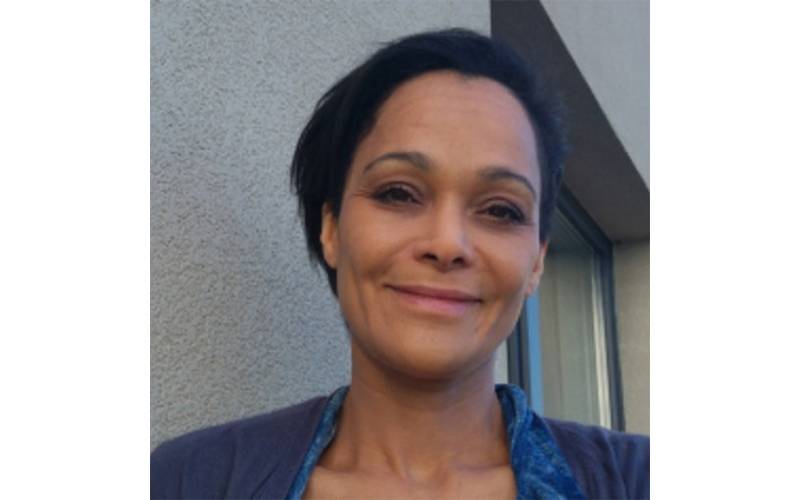This month we speak to Gillian Stokes to find out how her research is improving the health of the public.

What is your role and what does it involve?
I am a lecturer and mixed-methods researcher for the Social Science Research Unit (SSRU) and Evidence for Policy and Practice Information and Coordination Centre (EPPI Centre) which is based in the Social Research Institute. Although I cannot believe it, I have been here for nine years now. Time has flown by mainly because my work is so interesting and varied. Research-wise, I conduct health-focused systematic reviews and multi-method research on a wide variety of health topics.
Whatever the focus of my research, my interest and vision to ensure I involve the public and include their perspectives in the research that is conducted lies at the heart of all my work. I teach on the theoretical aspects of public involvement for the MSc Social Policy and Social Research at the UCL Institute of Education but also provide talks on this topic for health and social care facilities outside of UCL.
How are you improving the health of the public?
I do this in a number of ways. For example, this could be looking at the impact of medical conditions for various demographic groups for one project, to investigating the health benefits of specific improved healthcare services on the other. One of the most enjoyable benefits of working on the Department of Health and Social Care (DHSC) or National Institute for Health and Care Excellence (NICE) is the variety of issues that I get to engage with. Along with my colleagues at the EPPI Centre, we have helped to improve understanding and inform policy around Hepatitis C, Lyme disease, and much more. Currently, I am working on a systematic review for the London/York NIHR Policy Reviews Facility looking at qualitative evidence about the communication of cardiovascular event risk to inform practice.
What do you find most interesting or enjoyable about your work?
It is a cliché, but it is the people. The variety of people that I get to work with and meet during the course of my working life is phenomenal. I feel so privileged to have the opportunity to engage with such brilliant minds, and on a daily basis too. Like most academics, I carry the burden of imposter syndrome around with me, but somehow, being in the department that I am in, I genuinely feel that I have colleagues that support me to be and do the best that I can for UCL, and beyond.
The desire to make positive changes and push boundaries in health research has driven me to dedicate my spare time to mentoring and coaching young students of African or Caribbean heritage during my weekends and evenings. I would like to ensure that I pass on my enthusiasm for my work in all directions. I cannot wait to see what the next generation of boundary pushers are going to achieve. So, each time one of my mentees is successful at getting onto a health-related course at college or university, I feel an immense sense of joy and excitement at what the future holds.
How have cross-disciplinary collaborations shaped your research?
I come from a diverse work and learning background, and each stage of my life has involved working with different people, with various skillsets, from diverse disciplines. From my time working in television and media, through my health practitioner training, mastering ethnobotany and even the creative arts – I know that I have learned unique skills from them all and draw on these to form new approaches to conducting health research. Not surprisingly then, I truly believe in the importance of cross-disciplinary collaborations. Collaborations have proven to be fruitful for my research development, expanded my areas of interest, broadened my skillset, and made me passionate when lecturing on collaboration and co-production for my module (Research engagement, participation and impact). My work with the UCL Eastman Dental Institute helped progress my understanding of how very young children can influence translational medicine and have an impact at the coalface of the research process.
Something that is priceless about cross-disciplinary working, is when you get to see differing approaches or theories to research and engage with them first-hand. Sometimes we researchers feel safe using the methods and methodologies long utilised within our disciplines and show caution at new approaches. I have always been experimental around methods and methodologies, love sharing ideas and experiences and truly engaging with other people’s perspectives, experiences and expertise. Hence my enduring interest in public involvement in research.
What advice would you offer to others interested in developing cross-disciplinary research?
Be bold and challenge ideas. Be willing to change your perspective and adopt new approaches. If you are passionate about co-production and collaborative approaches, stand your ground to naysayers, but do so with grace. Think outside the box at all times, as… there is no box!
What's next on the research horizon for you?
I am keen to source funding to explore issues surrounding diversity and inclusion of diverse perspectives in producing research, which has always been on my radar – specifically regarding the implications for identifying relevant health research priorities and equity of voice in the process. To this end, I am building networks across Europe with an interest in inclusive research processes and practices and working with various institutions who are part of Health Cascade, a pan-European consortium of high-profile universities.
If you could make one change in the world today, what would it be?
Ha, a lot of good answers have been given for this over the past couple of years. However, I would love to put a cap on profit for big businesses, and direct excess profits to be repurposed to solve world health issues… tax-free. Basically, I would like to see a move towards altruistic mindsets and an end to greed. One can dream.
 Close
Close

